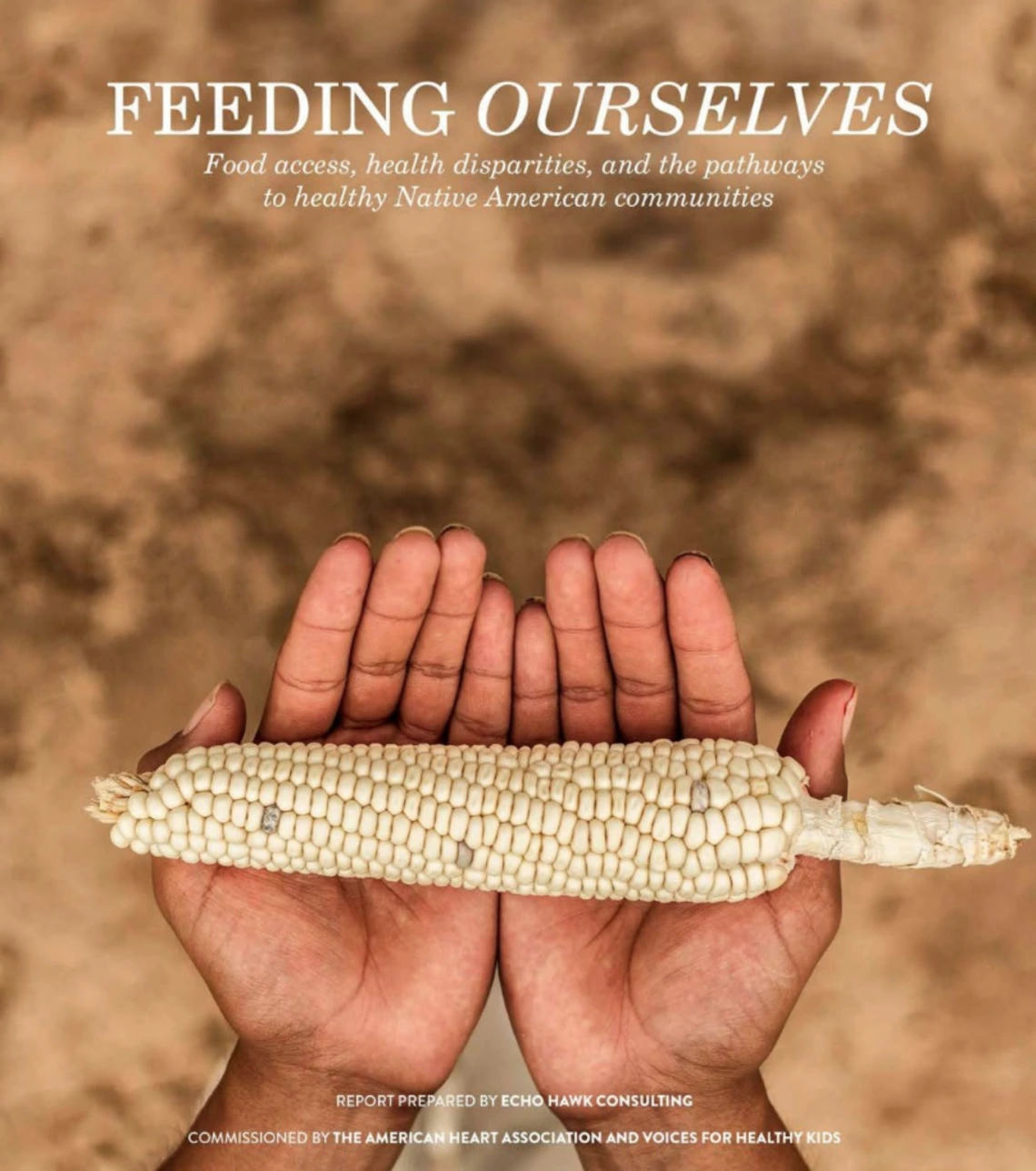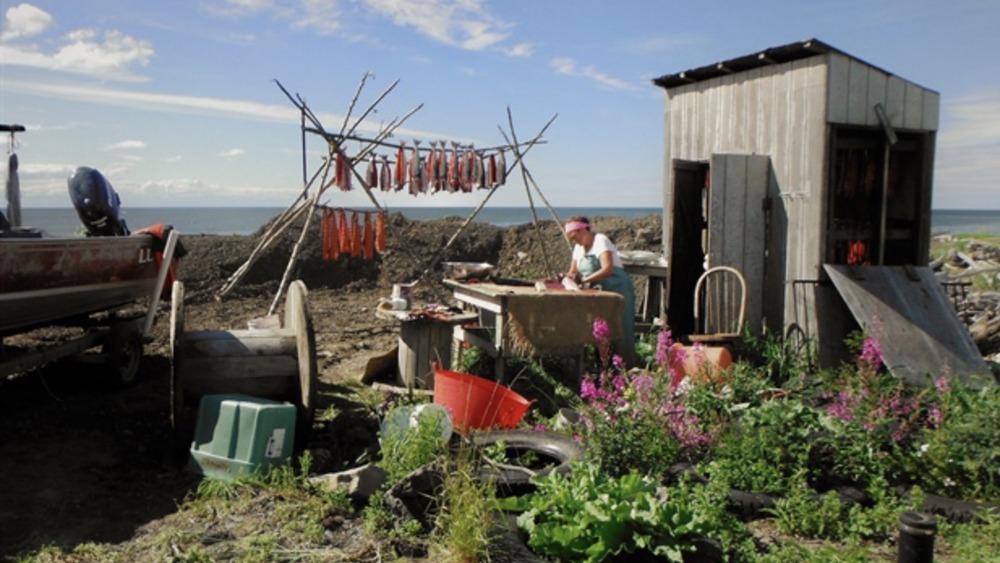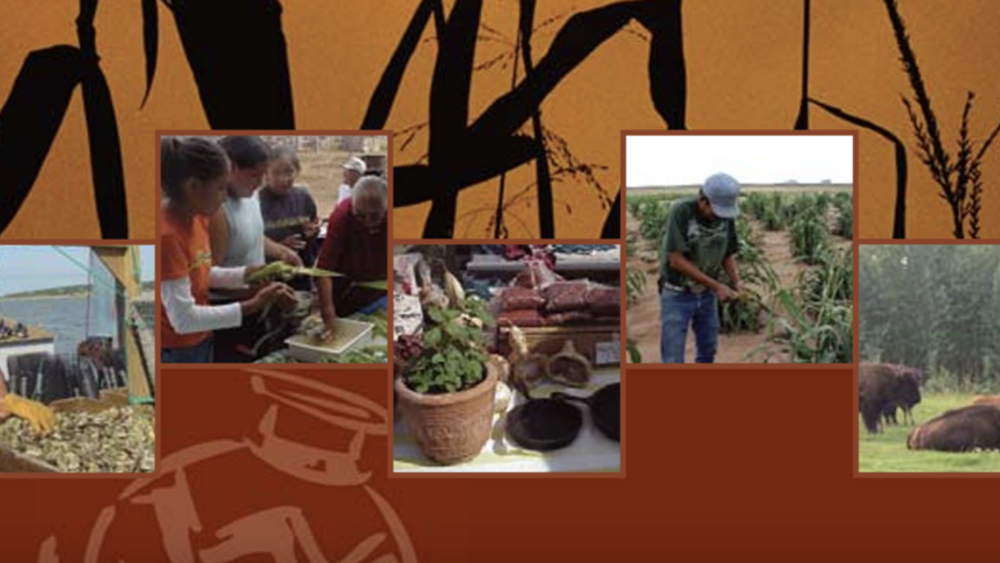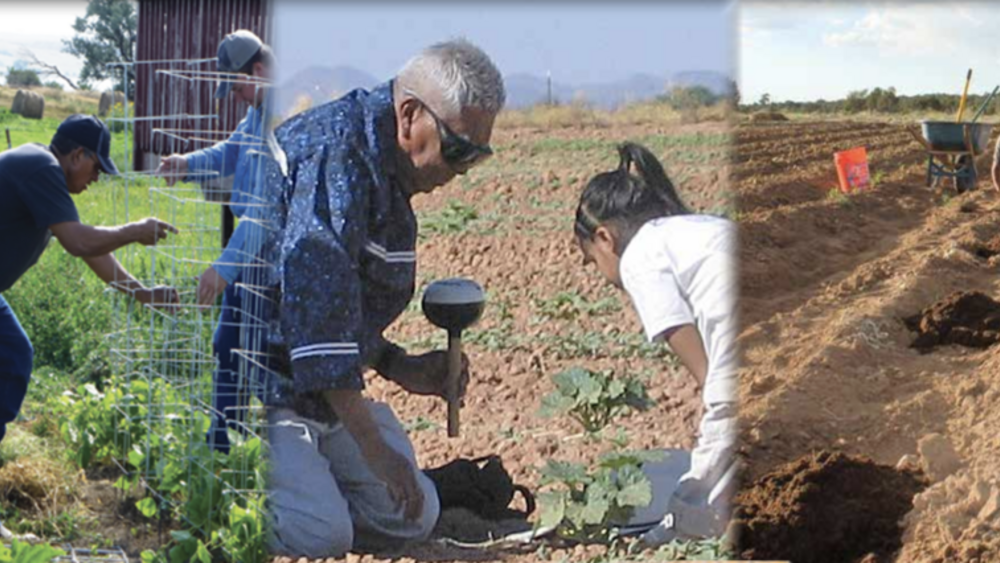Echo Hawk Consulting, headed by Crystal Echo Hawk, released today a comprehensive report on the state of food access in Native American communities, and the resulting health disparities in Native Americans. The report--commissioned by the American Heart Association (AHA) and its Voices for Healthy Kids joint initiative of the Robert Wood Johnson Foundation (RWJF) and AHA--calls for tribes, the federal government, and philanthropic organizations to serve as agents of change in the area of Native food access.
Written with Janie Simms Hipp, Director of the Indigenous Food and Agriculture Initiative, and Wilson Pipestem of Pipestem Law, the report describes the problem Natives face:
“Now-repudiated federal policies that forcibly separated Native peoples from our historical lands and traditional sources of food are manifesting in our bodies today. Separation from healthy foods has been one of the most pernicious health problems we endure. The epidemics of obesity and diabetes in Native communities, even among our children, are direct consequences of limited access to healthy food.â€
Feeding Ourselves examines success stories from grassroots programs in tribal communities that inspire and educate. The authors then suggest specific pathways for tribes, the federal government, and philanthropists to empower Native people to solve these difficult problems.
Additional Information
Echo Hawk Consulting. Feeding Ourselves: Food Access, Health Disparities, and the Pathways to Healthy Native American Communities. Echo Hawk Consulting. Longmont, Colorado. 2015. Paper. (https://search.issuelab.org/resource/feeding-ourselves-food-access-health-disparities-and-the-pathways-to-healthy-native-american-communities.html, accessed April 11, 2023)




